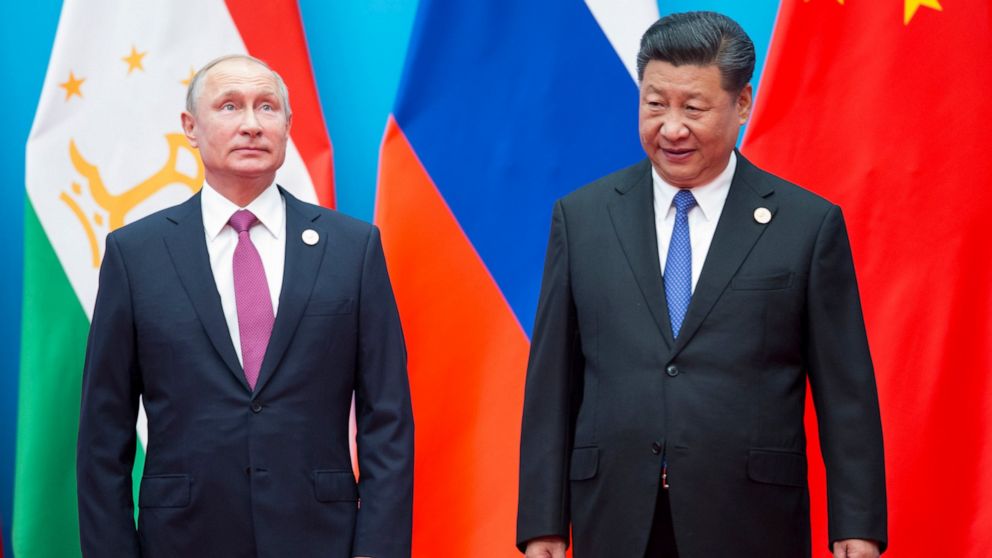BEIJING — President Xi Jinping is using his first trip abroad since the start of the pandemic to promote China‘s strategic ambitions at a summit with Russia’s Vladimir Putin and other leaders of a Central Asian security group.
The Chinese leader is promoting a “Global Security Initiative” announced in April following the formation of the Quad by Washington, Japan, Australia and India in response to Beijing’s more assertive foreign policy. Xi has given few details, but U.S. officials complain it echoes Russian arguments in support of Moscow’s attack on Ukraine.
Xi, 69, is due to meet Putin in Uzbekistan this week at a summit of the eight-member Shanghai Cooperation Organization, which also includes Uzbekistan, India and Pakistan.
“China and Russia share the same stance in opposing the Western practice of imposing sanctions and overthrowing regimes of other countries,” said Li Xin, director of Shanghai University of Political Science and Law’s Institute of European and Asian Studies.
Putin and Xi will hold a one-on-one meeting Thursday and discuss Ukraine ahead of the next day’s security summit, the Russian president’s foreign affairs adviser, Yuri Ushakov, told reporters in Moscow.
“The issue will be thoroughly discussed during the meeting,” Ushakov said.
Xi’s trip at a time when his government is urging the Chinese public to avoid foreign travel under its “zero COVID” strategy emphasizes the importance to the ruling Communist Party of asserting China’s role as a regional leader.
The summit takes Xi abroad while the party prepares for an October congress at which he is expected to break with political tradition and try to award himself a third five-year term as leader.
That suggests Xi, China’s most powerful leader since at least the 1980s, is confident he doesn’t need to stay home to make political deals. It also might help to promote his standing with nationalists in the ruling party.
Beijing-Moscow relations were chilly during the Soviet era, but the two sides have developed political and commercial ties since the late 1990s. They have few common interests but are motivated by shared frustration about U.S. dominance of global affairs and Chinese demand for Russian oil and gas.
Xi’s government refused to criticize Putin’s attack on Ukraine. It accuses the United States of provoking the conflict.
“China has taken a well-balanced approach to the Ukrainian crisis, clearly expressing its understanding of the…
Click Here to Read the Full Original Article at ABC News: International…

